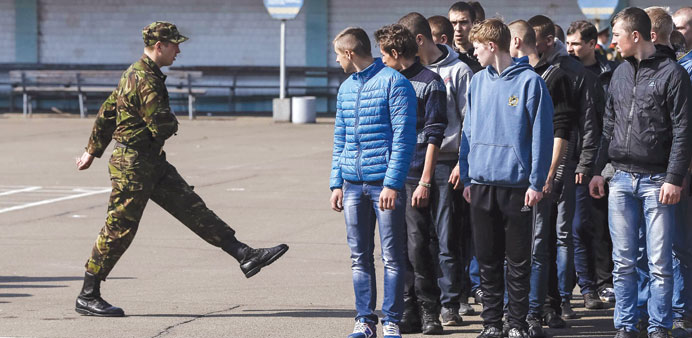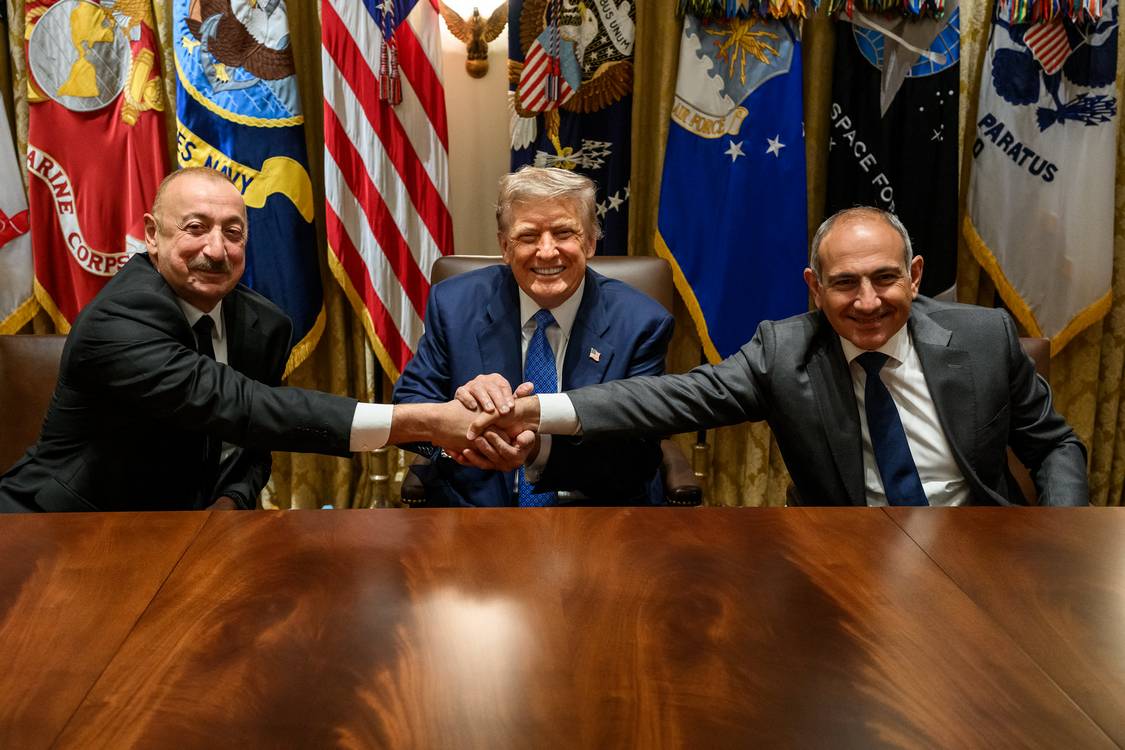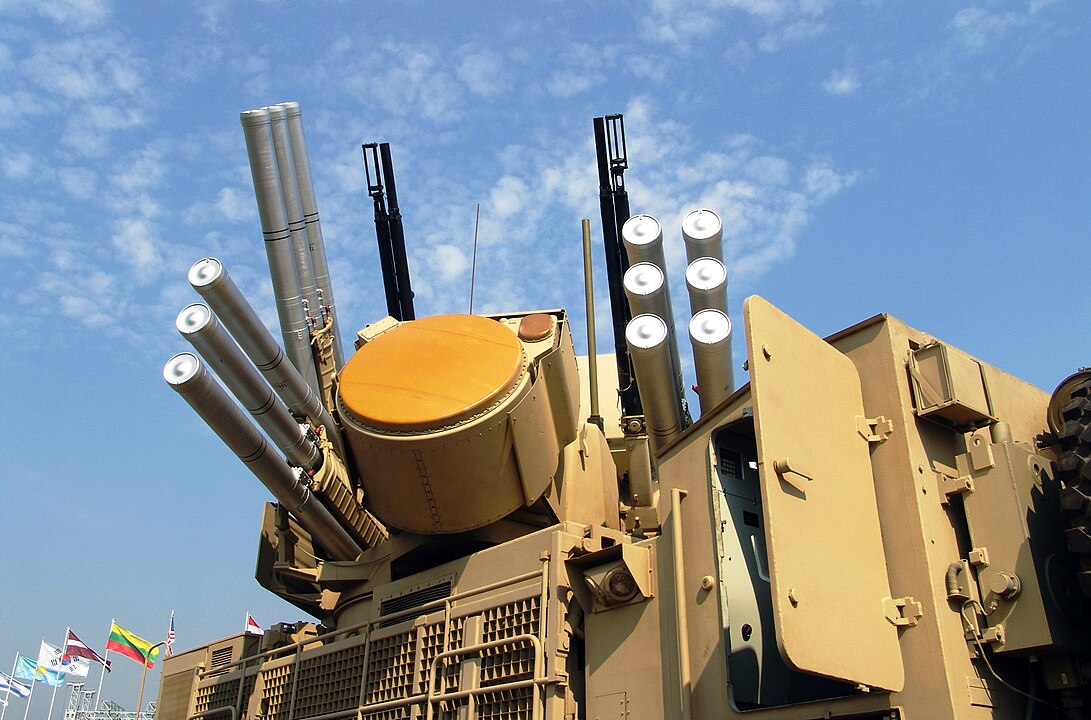A report from the BBC details that Ukrainian society is growing deeply uneasy at the prevalence of “conscription squads” or teams of military police officers frequenting events and public areas to check draft eligibility or even drag young men off to conscription centers.
It’s a result of a bill passed in April that lowered the age of mandatory military slavery in Ukraine to 25 and removed some of the barriers that protected the main portion of the economic workforce from the draft. At the time, President Zelenskyy said it would help raise hundreds of thousands of additional troops for the flagging army.
The Mirror reports that the measure has so far registered around 50,000, but not all those registered are sent to fight. Nevertheless, key facets in civil society like public transport, dinner out, or weddings—that of Serhiy and Tania for example—are being disrupted by fears of showing oneself in public.
Reporting from Odesa, Jean Mackenzie writes for the BBC that the newlyweds found roughly half of the guests declined the invitation to share their special day over fears of conscription squads, who were described as “bandits” who won’t hesitate to pull people out of restaurants or buses, force them into vans, and drive them off to conscription centers.
The exemptions from the draft aren’t as broad as they were before, and McKenzie heard from one man named Maksym who found out that despite having a child and a pregnant wife, he was eligible for the draft and was breaking the law by not voluntarily registering.
Mykola Petrovskyi, a 28-year-old social worker eligible for the draft who also spoke to the BBC, said he objected to mandatory enlistment because he was “not born for this”.
“I am not ready to go somewhere tomorrow and kill people,” he said. “It’s not because I’m not a patriot of my country, it’s because I am not ready to kill. I am not born for this. I am a person who’s ready to help save someone’s life, but not take one”.
In the face of this societal disruption, an amendment just passed the US House of Representatives for the 2025 defense budget that would order the creation of an automatic draft registration program for young men and young men that would put to rest 40 years of failing to voluntarily register, as the law of the US currently requires.

Selective Service System
On June 14th, both the US Senate and House Armed Service Committees approved different proposals related to amending the Selective Service System (SSS) the current compulsory military service feature of the US Code.
A subsequent vote on the House floor was 217-199 for an addition to the National Defense Authorization Act that would switch the SSS from a voluntary registration to an automatic one, that would bungle through who-knows-how-many privacy and data-aggregation violations to create a new statutory authority for compelling all other federal agencies including the Social Security Administration, IRS, Citizenship and Immigration Services, and others to turn over any or all records on a person to determine eligibility for draft registration.
“By using available federal databases, the [Selective Service] agency will be able to register all of the individuals required and thus help ensure that any future military draft is fair and equitable,” said Rep. Chrissy Houlahan (D – PA) who introduced it to the House Armed Services Committee where it passed 57 to 1.
By law, all US males are required to register at the draft office when they turn 18. This federal law—a felony if violated—is not always observed by Americans in the present epoch.
Men failing to register for the draft before their 26th birthday, according to USA Today, have many federal benefits forever revoked. Penalties for those prosecuted include 4 years imprisonment and fines up to $250,000.
Edward Hasbrouck reports that the markup of the amendment was conducted in a closed session, and there was no debate before the votes. WaL found a single paragraph related to the SSS in the Senate committee version of the bill’s executive summary, where they note the SSS’ expansion to include women.
“Proposals to automate draft registration are a response to decades of failure of the current registration system,” Hasbrouck, who was jailed in 1983 for failing to register, wrote on Antiwar. “It’s possible that either or both of these proposals are intended as ‘bargaining chips’ intended to be withdrawn in exchange for concessions on other issues during the conference negotiations. The conference committee could include either, neither, both, or some other compromise on Selective Service in its final package of compromises…”
Hasbrouck says that the Republican-majority House will meet in a conference committee to reconcile the two versions with the Democratic-majority Senate, the former trying to include the automatic registration, the latter trying to expand it to women, which the House did not approve.
Its placement within the NDAA rather than as standalone legislation is telling, since it can be stuffed amid the thousands of proposals and sections of the military budget’s page count which typically ranges well over one thousand. If it were introduced as its own, it would require debate, votes, and other aspects of quorum devoted solely to it—allowing for much greater visibility from the public. WaL
We Humbly Ask For Your Support—Follow the link here to see all the ways, monetary and non-monetary.
PICTURED ABOVE: Chrissy Houlahan, who introduced automatic draft legislation into the House Armed Services Committee, at a debate in 2018. PC: Garen M. CC 2.0.



